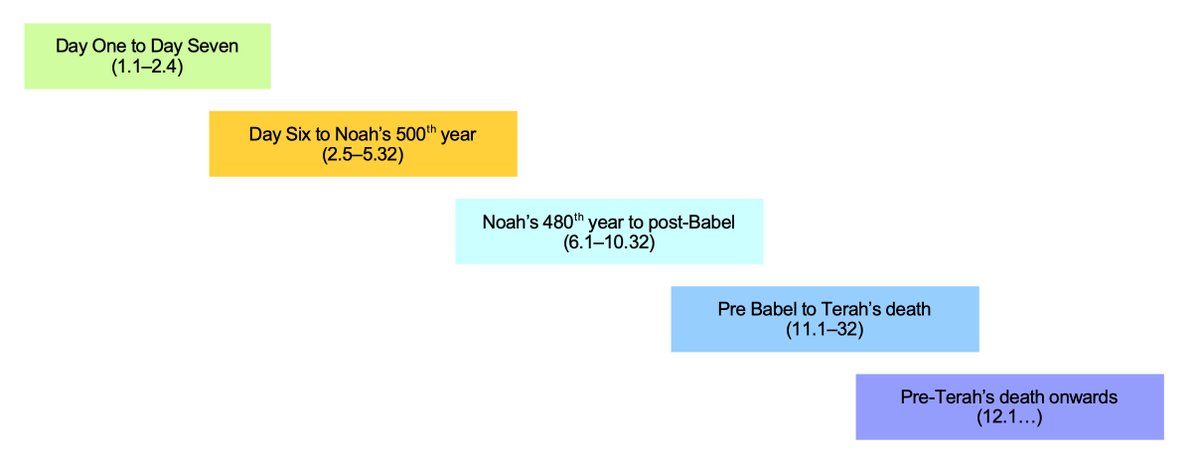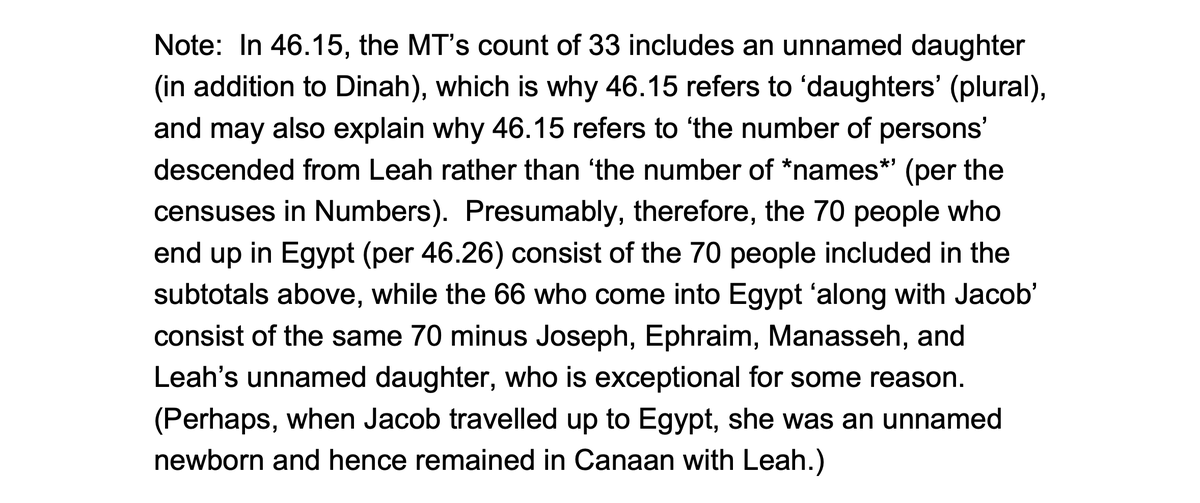In Acts 7, Stephen delivers what is (arguably) the Bible’s longest sermon.
Controversially, however, he makes a number of historical blunders,
and leans heavily on the LXX.
Or at least so it’s often claimed.
Below, I’ll consider a few of them.
Why? Because, in Gen. 11.26, Terah is said to be 70 when he fathers Abraham, Nahor, and Haran.
where Terah is said to die at the age of 205 (11.31–32),
at which point the text of Gen. 12 recounts God’s appearance to Abraham.
and he says Abraham left Haran only *after* Terah died,
despite the fact Abraham is only said to have been 75 when he left Haran (Gen. 12.4).
If the text of Gen. 12.1 follows the text of Gen. 11.32, then shouldn’t the *events* of Gen. 12.1 be taken to follow those of Gen. 11.32?
Maybe, then, Stephen just blundered under pressure. Who could blame him?
Other explanations, however, are possible.
Maybe Stephen realised God told Abraham to leave his *homeland* (rather than Haran) in Gen. 12.1,
in which case God must have appeared to Abraham in Ur.
and hence understood the text of Gen. 12.5 to presuppose the death of Terah.
and Haran’s daughter may have been the same age as Nahor (whom she marries: Gen. 11.29).
In other words, maybe Stephen wasn’t such a careless exegete after all.
In his sermon, Stephen mentions a number of ‘couplets’ of important individuals—a point we’ll take up later.
The first couplet is Abraham and Joseph.
The answer—given Stephen’s exegesis—is as follows.
Both men were spoken to by God while in their homeland (cp. Joseph’s dream),
and both men were afterwards removed from their homeland.
ultimately, both men were removed by *God* (Gen. 50.20),
These are not unimportant details; rather, they are central to one of the points of Stephen’s sermon.
Why? Because the same thing is about to happen again.
and the knowledge of God will thereby be taken to a new land,
as is explained in the very next chapter (Acts 8).
————————
In 7.14, Stephen says Joseph summoned Jacob and all his kindred,
which, he claims, amounts of a total of ‘75 people’.
Has Stephen got confused again?
Why, then, does Stephen mention a total of 75?
Has he made a blunder?
Or has he followed Greek translations of Gen. 46.27 (which credit Joseph with an extra nine sons)?
Possibly.
Maybe, for instance, Stephen did his own sums.
which it breaks down into the 33 descendants of Leah (46.8–15) (exclusive of Er and Onan, who are slain),
the 16 descendants of Zilpah (46.16–18),
while Stephen’s count of Jacob’s ‘kindred’ (συγγένεια) do include these five (additional) individuals.
Stephen organises his references to OT characters in couplets,
which he defines on the basis of what he does and doesn’t tell us about them:
yet he *does* mention the count of people (*75*) who end up in Egypt,
which serves to couple together Abraham and Joseph and hence to highlight certain commonalities between them (discussed above).
which serves to highlight certain commonalities between Moses and Joseph.
which is (again) very relevant to Acts 8.
When Jesus’ followers are scattered/exiled in 8.1ff., the word of God will not be sidelined, but will bear fruit in foreign lands.
————————
yet Gen. 33 says it was *Jacob* who bought it.
Why the difference? More confusion on Stephen’s behalf?
I don’t think so.
God promised he’d give Abraham (and his seed) a possession in Canaan (7.5),
And Stephen wants us to see Joseph’s burial in Shechem as the fulfilment of God’s promise.
And, consequently, when Joseph and his brothers returned from Egypt and were buried in Abraham’s burial ground, God’s promise was fulfilled.
But, by happy coincidence, we can point to a similar phenomenon nearby.
In Matt. 27, we’re told about a different plot of land which is bought with a dead man’s money, namely Judas’s ‘field of blood’.
just as it is in Abraham’s case.
In his twelve rules for life, @jordanbpeterson exhorts us to assume our interlocutors are aware of things which we’re *not* aware of.
The same principle can fruitfully be applied to Biblical exegesis.
Stephen’s treatment of the OT is careful, deliberate, and quite brilliant,
which I suspect he got from Jesus’ example.
He lived like Jesus lived (Acts 6a).
He was treated like Jesus was treated (cp. Acts 6b’s false witnesses, etc.).
And he died as Jesus died (Acts 7b).
That’s not a bad thing to strive to have written on your gravestone, right?
THE END.







